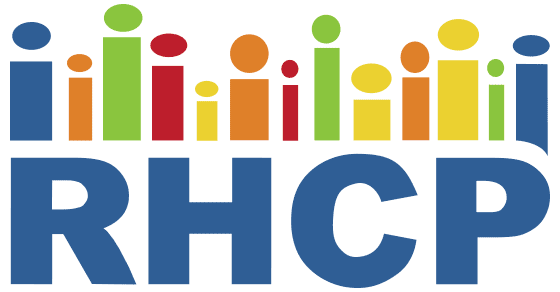Mindful Hearts
In previous RHCP assessments, addressing mental health and stress has been identified as a health priority for research by community partners. Community partners acknowledge and research has shown that immigrant women face unique stressors associated with parenting, gender roles, language barriers, family separation, employment uncertainties, among others.
In previous RHCP assessments, addressing mental health and stress has been identified as a health priority for research by community partners. Community partners acknowledge and research has shown that immigrant women face unique stressors associated with parenting, gender roles, language barriers, family separation, employment uncertainties, among others. Stress has been linked to numerous health consequences at both the mental and physical levels. RHCP partners expressed interest in developing a stress management intervention and thought that a gender-specific intervention focused on women would be helpful as the first step in this research.
To explore immigrant women's experiences with stress, their opinions about a stress management intervention, its delivery format, and whether technology-assisted interventions could be included, so that a culturally appropriate programming could be developed, focus groups among Somali, Spanish, and English-speaking immigrant women will be conducted to obtain stakeholder feedback to culturally adapt an evidence-based stress management intervention. It is anticipated that the results of this study will assist in developing and evaluating a culturally-sensitive stress management intervention prototype for immigrant women.
Funding
Mayo Clinic
Healthy Immigrant Community
While immigrant and refugee populations arrive to the United States healthier than the general population, these advantages disappear over time, partly due to adoption of unhealthy dietary behaviors.
Although immigrants and refugees often arrive in the United States with better health than the general population, these advantages diminish over time, in part due to the adoption of unhealthy dietary behaviors. Population-based interventions have had limited success in preserving these early health advantages, highlighting the need for innovative approaches that are tailored to—and led by—immigrant communities themselves. In 2011, RHCP received funding for the Healthy Immigrant Families (HIF) project, in which community and academic partners co-developed a 12-lesson, home-based intervention focused on healthy eating and physical activity, delivered by bilingual interventionists. At 12 months, adults in the intervention group showed significant improvements in dietary quality compared with controls, although improvements were also observed in the control group.
These findings led to the development of the Healthy Immigrant Community (HIC) project, which builds on the HIF model by leveraging social networks to enhance reach, sustainability, and behavior change. The goal of HIC is to adapt the HIF intervention into a social network–based approach to improve dietary behaviors among overweight and obese immigrant adults in Rochester, Minnesota. In February 2020, RHCP launched a pilot study in which Hispanic and Somali adults were trained as Health Promoters through 12 face-to-face lessons taught by Mayo Clinic experts, after which the Health Promoters delivered the same content to social networks of five to ten individuals. Building on this pilot, RHCP enrolled 475 participants in a randomized clinical trial in June 2022, with Health Promoters receiving ongoing training from Health Coaches and leading face-to-face or virtual group sessions over 12 months, each focused on key aspects of healthy eating and physical activity. Preliminary results from the HIC trial indicate that participants have reduced cardiovascular risk and experienced weight loss. These early findings are currently being disseminated to the community through RHCP’s established outreach and engagement channels.
Publications
Funding
National Institutes of Health: National Heart, Lung and Blood Institute (R01 HL 111407)
Mayo Clinic Center for Clinical and Translational Science: National Center for Advancing Translational Science UL1 TR000135
Mayo Clinic Office of Health Disparities Research
National Institutes of Health: National Institute on Minority Health and Health Disparities (P50 MD017342)
Healthy Immigrant Families
Immigrants and refugees arrive to the United States healthier than the general population. But, the longer they live in the U.S., the more likely they are to approximate the cardiovascular risk profiles of the general population, including increased rates of obesity, high blood pressure, high cholesterol, diabetes, and heart disease.
Immigrants and refugees often arrive in the United States with better overall health than the general population; however, over time, their cardiovascular risk profiles increasingly resemble those of U.S.-born populations. This shift includes higher rates of obesity, hypertension, high cholesterol, diabetes, and heart disease, driven in part by low levels of physical activity and limited access to healthy foods. These behaviors are shaped by a complex interplay of social, economic, environmental, and cultural factors that influence lifestyle choices and health opportunities.
Healthy Immigrant Families was a community-based participatory research (CBPR) project designed to improve physical activity and dietary habits among immigrant and refugee families in Rochester, Minnesota. The intervention was developed with and for participating communities and delivered through family-centered, home-based coaching focused on physical activity and healthy eating. Coaching was provided by trained Family Health Promoters from the same communities as participants and engaged Hispanic, Somali, and Sudanese families. Program effectiveness was evaluated using objective and self-reported measures, including accelerometer-based physical activity, 24-hour dietary recalls, blood pressure, body mass index (BMI), and health-related quality of life. A total of 151 participants from 44 families were enrolled at baseline, and at 12 months, the intervention had reached 100% of active families, with 93% remaining engaged in study activities.
Funding
National Institutes of Health: National Heart, Lung and Blood Institute (R01 HL 111407)
Mayo Clinic: Center for Clinical and Translational Science, Office of Health Disparities Research
Materials
Publications
Relationship Between Negative Mood and Health Behaviors in an Immigrant and Refugee Population
Let’s Talk
Healthy literacy influences health behaviors and health outcomes. It is estimated that close to half of the adult United States population is functionally illiterate when it comes to health.
Health literacy plays a critical role in shaping health behaviors and outcomes, yet nearly half of adults in the United States are estimated to have limited functional health literacy. Low health literacy disproportionately affects racial and ethnic minority populations, contributing to health disparities. Let’s Talk was a pilot project designed to test the feasibility and sustainability of a community-based health literacy curriculum focused on improving health knowledge and promoting healthy behaviors on topics identified directly by the community.
The project consisted of a series of educational sessions led by registered nurses who were graduate students in the Winona State University Nursing Program. These nurses worked with members of African American, Cambodian, Hispanic, Somali, and Sudanese communities to address health-care system navigation, disease prevention, health promotion, and chronic disease management. Nurses partnered closely with community leaders or liaisons to tailor the curriculum to each group’s needs, with sessions held in accessible, trusted settings such as schools, community centers, homes, apartment common rooms, and religious gathering places throughout Rochester. Session structure and frequency varied by community—for example, sessions were integrated into Cambodian Cultural School programming, held after church services for Sudanese and African American families, conducted with elderly Somali residents in their apartment buildings, and hosted in Hispanic families’ homes. Many sessions were based on Staying Healthy from the Florida Literacy Coalition, Inc., which was adapted to include Minnesota-specific health resources and expanded to address topics prioritized by Rochester community members.
Staying Healthy Guide
Funding
Winona State University Foundation
Mayo Clinic: Center for Clinical and Translational Science
Club Fit
Club Fit was an initiative aimed at promoting healthy habits and preventing excess weight gain among children members at the Boys and Girls Club of Rochester, Minnesota (BGCR). Obesity is associated with increased risk for cardiovascular, metabolic, and other health conditions and for psychosocial concerns such as bullying, stigma, and emotional difficulties.
Club Fit was an initiative designed to promote healthy habits and prevent excess weight gain among children at the Boys and Girls Club of Rochester, Minnesota (BGCR). Childhood obesity is linked to increased risk for cardiovascular and metabolic conditions, as well as psychosocial concerns such as bullying, stigma, and emotional difficulties. In the United States, approximately one-third of children and adolescents are overweight or obese, with disproportionate impacts on children from racial/ethnic minority groups and low-income households. BGCR serves more than 1,600 children annually, nearly two-thirds of whom identify as racial or ethnic minorities, and the majority of whom live in low-income homes. Through its youth development programming, BGCR emphasizes Health and Life Skills, including physical activity and nutrition, as a core area of focus.
The formative phase of Club Fit involved reviewing existing physical activity and nutrition programming and identifying opportunities for enhancement. Researchers conducted focus groups, surveys, and physical assessments to examine barriers, facilitators, and opportunities for sustaining healthy behaviors among BGCR members. Using these findings, BGCR leaders and staff partnered with health promotion experts from Mayo Clinic and RHCP to develop a physical activity and nutrition intervention integrated into regular BGCR programming. BGCR staff delivered the intervention while researchers conducted pre- and post-assessments to evaluate its effectiveness. Results showed improvements in participants’ motivation and self-efficacy for engaging in physical activity, as well as a dose-response relationship between participation in Club Fit activities and healthier body mass index. Following the evaluation, BGCR continued incorporating Club Fit components into its Health and Life Skills curriculum.
Funding
Mayo Clinic: Center for Clinical and Translational Science and Office of Health Disparities Research
Publications




